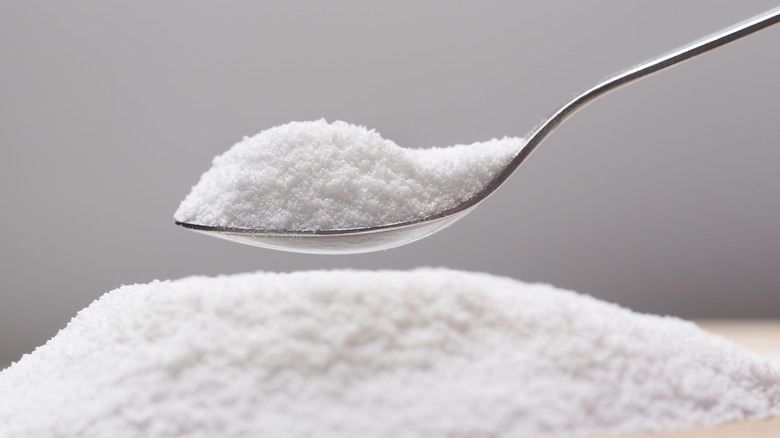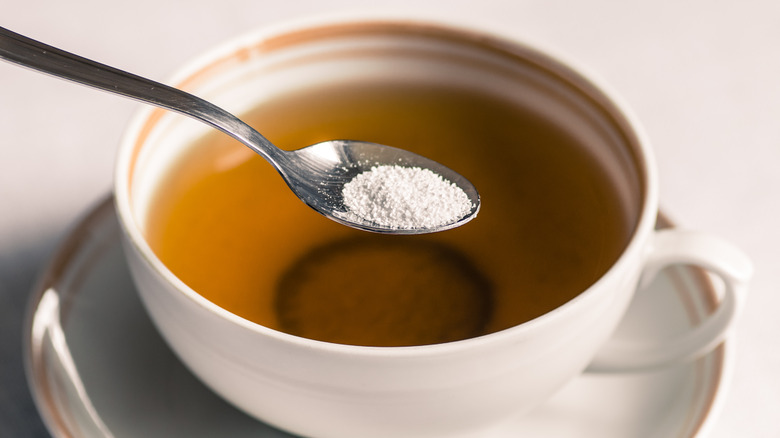Aspartame Sweetener Is Having The Opposite Of A Moment
Since 1981, aspartame has been used as a replacement for regular white sugar in various capacities. Because it's 200 times sweeter than sucrose, the non-nutritive sweetener seemed like a promising sugar alternative to control obesity and maintain a healthy weight. Sold under brand names like NutraSweet, aspartame is widely used in confectionery, cereals, gums, and sodas like Diet Coke.
For all these years, it was thought to be an effective weight management aid, but the World Health Organization (WHO) recently advised against using non-nutritive sweeteners like aspartame due to an increased risk of developing diabetes and cardiovascular disease among other ailments. Now, the International Agency for Research on Cancer (IARC) is reportedly gearing up to release a study that will list aspartame as a possible carcinogen, per Reuters.
According to the leaked report, aspartame usage will also be reviewed by JECFA, the WHO committee on additives that previously labeled it safe to consume within recommended daily dosage. Although the new study seems to have found a possible link between aspartame and cancer, the evidence is reportedly limited.
Aspartame has had its fair share of controversies
Although IARC's latest study classifies aspartame as a potential carcinogen, it is worth noting that the organization has stated that the organization "evaluates evidence on the cause of cancer but does not make health recommendations." Since it's not an official food safety body, there have been pushbacks against its new study, especially since it has been criticized for its rulings in the past.
In any case, the leaked report sent the internet into a frenzy. Some were skeptical, while others thought it was a long time coming. "'Possible' means not confirmed," one user tweeted. "This surprises nobody, there have been a multitude of studies for over a decade highlighting the possible dangers of aspartame. It's been authorized for use to allow producers to claim reductions in sugar content and the avoidance of 'Sugar Tax','" another user wrote.
That is not to say that artificial sweeteners like aspartame are totally safe to consume. Aspartame has been linked to behavioral disorders, autism, skin problems, phenylketonuria, glucose and insulin intolerance, and weight gain in children. In 2020, food safety experts Professor Erik Millstone and Dr. Elisabeth Dawson urged aspartame to be banned in the U.K. over health risks.

